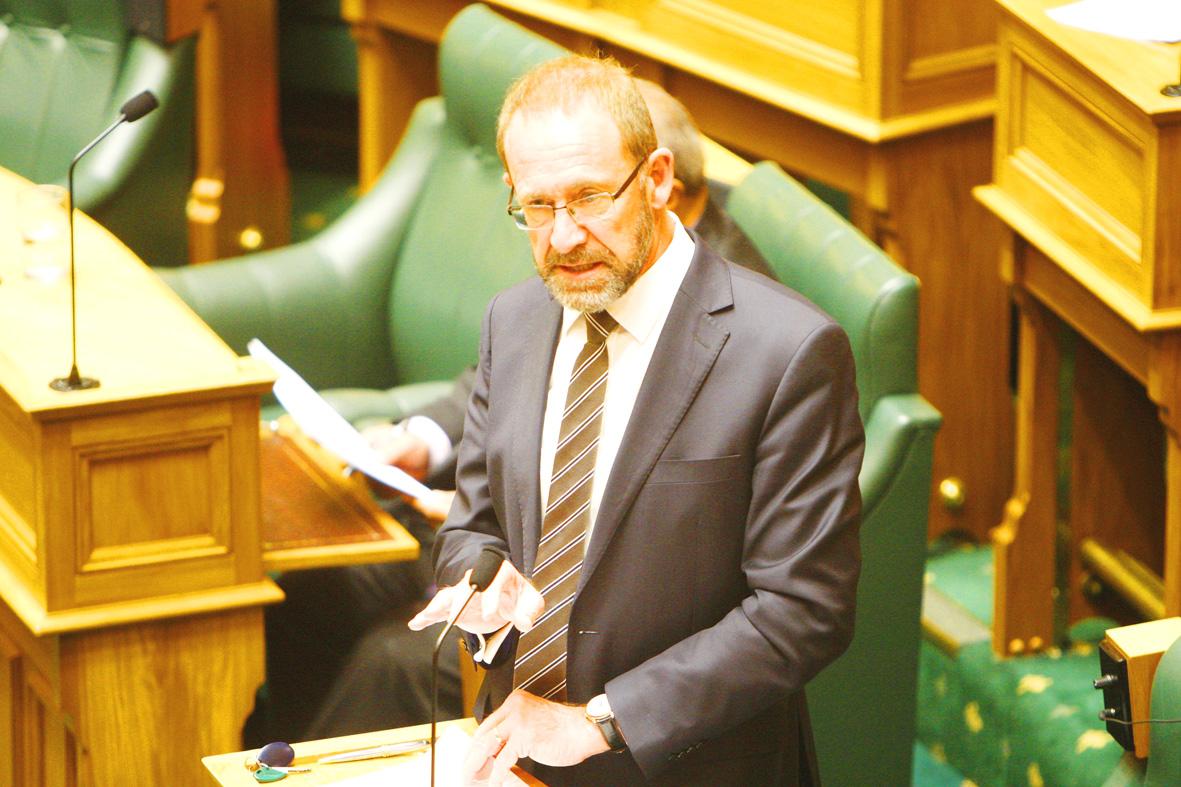New Zealand has passed legislation to have abortions treated as a health issue rather than in crime legislation, with the change passing on Wednesday by a vote of 68 to 51.
The legislation replaces abortion laws in place since 1977 and proposes that a woman should have access to abortion until 20 weeks of pregnancy, with advice from a doctor.
After 20 weeks, a pregnant woman would require a test and two doctors would have to agree that an abortion is the right decision.

Photo: AP
Under the old law, a woman could only legally get an abortion if two doctors certified that continuing the pregnancy would result in danger to her mental or physical health.
Statistics New Zealand data show that in 2018, 13,282 induced abortion were performed in the nation of about 4.7 million people.
New Zealand Minister of Justice Andrew Little said that the previous law meant that most women who received abortions lied about their mental health.
National Party lawmaker Simeon Brown, who opposed the change, said that fetuses have a heartbeat and feel pain, and should be considered a person who is treated with dignity and respect.
Jackie Edmond, chief executive of Family Planning, New Zealand’s largest referrer of women to abortion services, said she was thrilled with the vote.
“It’s fantastic that parliament has addressed something that they should have addressed 40 years ago,” Edmond said.
New Zealand Prime Minister Jacinda Ardern in 2017 promised on the campaign trail that the issue would be brought to a vote.
Margaret Sparrow was 21 years old when she drank a concoction to induce an abortion, now aged 84, she said she was delighted with the law change.
“It’s been a long time coming,” said Sparrow, a doctor who is an abortion advocate.
Sparrow said it was not so much her own experience of having an abortion that motivated her work over the decades, but more recognizing that there was an unfilled need for women.
She began her career helping students get access to contraception and for several years helped send people to Australia to get abortions before the first New Zealand clinic opened.
She said that Roe v Wade the 1973 US Supreme Court decision gave people hope for change in New Zealand.
Sparrow said that the new law was a step forward, but her work is not done yet.
“It will be safer for women and better for access,” she said. “The next stage is making sure it’s implemented.”

PARLIAMENT CHAOS: Police forcibly removed Brazilian Deputy Glauber Braga after he called the legislation part of a ‘coup offensive’ and occupied the speaker’s chair Brazil’s lower house of Congress early yesterday approved a bill that could slash former Brazilian president Jair Bolsonaro’s prison sentence for plotting a coup, after efforts by a lawmaker to disrupt the proceedings sparked chaos in parliament. Bolsonaro has been serving a 27-year term since last month after his conviction for a scheme to stop Brazilian President Luiz Inacio Lula da Silva from taking office after the 2022 election. Lawmakers had been discussing a bill that would significantly reduce sentences for several crimes, including attempting a coup d’etat — opening up the prospect that Bolsonaro, 70, could have his sentence cut to

China yesterday held a low-key memorial ceremony for the 1937 Nanjing Massacre, with Chinese President Xi Jinping (習近平) not attending, despite a diplomatic crisis between Beijing and Tokyo over Taiwan. Beijing has raged at Tokyo since Japanese Prime Minister Sanae Takaichi last month said that a hypothetical Chinese attack on Taiwan could trigger a military response from Japan. China and Japan have long sparred over their painful history. China consistently reminds its people of the 1937 Nanjing Massacre, in which it says Japanese troops killed 300,000 people in what was then its capital. A post-World War II Allied tribunal put the death toll

‘UNWAVERING ALLIANCE’: The US Department of State said that China’s actions during military drills with Russia were not conducive to regional peace and stability The US on Tuesday criticized China over alleged radar deployments against Japanese military aircraft during a training exercise last week, while Tokyo and Seoul yesterday scrambled jets after Chinese and Russian military aircraft conducted joint patrols near the two countries. The incidents came after Japanese Prime Minister Sanae Takaichi triggered a dispute with Beijing last month with her remarks on how Tokyo might react to a hypothetical Chinese attack on Taiwan. “China’s actions are not conducive to regional peace and stability,” a US Department of State spokesperson said late on Tuesday, referring to the radar incident. “The US-Japan alliance is stronger and more

FALLEN: The nine soldiers who were killed while carrying out combat and engineering tasks in Russia were given the title of Hero of the Democratic People’s Republic of Korea North Korean leader Kim Jong-un attended a welcoming ceremony for an army engineering unit that had returned home after carrying out duties in Russia, North Korean state media KCNA reported on Saturday. In a speech carried by KCNA, Kim praised officers and soldiers of the 528th Regiment of Engineers of the Korean People’s Army (KPA) for “heroic” conduct and “mass heroism” in fulfilling orders issued by the ruling Workers’ Party of Korea during a 120-day overseas deployment. Video footage released by North Korea showed uniformed soldiers disembarking from an aircraft, Kim hugging a soldier seated in a wheelchair, and soldiers and officials